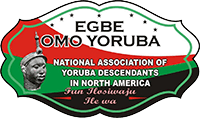We all at the convention recalled that the 1959 and 1963 Constitutions are the only such documents that were freely negotiated by our representatives; all other constitutions that eventually robbed us of our capacity to build our own homes were made by military dictators (Murtala Mohammed/Olusegun Obasanjo and Babangida to Abacha) working on behalf of the Islamic North. By adopting the Oodua Youth Movement’s charter, we would share the same goals with those at home that constitute the crucial sources of energy for the struggle to accomplish either the restructuring of the federation or self-determination; either of which will call for utmost sacrifice on our part. We decided not to fool ourselves by thinking that the Northern Islamic Hegemony in Nigeria will readily accept to renegotiate the terms of association with us. To prepare for fundamental restructuring is as complex and demanding as preparing for self-determination. We needed the same set of skills and strategies to make either of the two happen.
The California convention is about ideas and not about the details of struggling for self-determination, it was the next convention in Washington D.C; we addressed the rest of what we needed to do and how we should go about it in terms of mobilizing the Yoruba people at home and abroad for the struggle ahead. At the Washington D.C. convention we perfect the constitution of the Egbe, we identified three different groups that may require different approaches: the Yoruba upper-class (currently under siege); the Yoruba middle-class (already decapitated by the Babangida regime); and the Yoruba lower/underclass (prevented by one decade of aggressive impoverishment from having any access to any respectable means of livelihood within the context of Nigeria back then). While a Media Strategy Task Force was set up to work out the details of how to package the message for each group described above, there was urgent need for a fast means of communicating with the Yoruba grassroots community.
Radio is the easiest way to reach several of our people at the same time and with little cost to them on a daily basis. Radio Kuburat was later established by the Egbe and was named after the wife of Moshood Abiola. The Radio was sponsored by many individuals in the struggle including members of NADECO. In addition, a Newsletter of Yoruba Nationalist is another crucial component of the mobilization strategy that is direly needed and Kaa ro O Ji’re magazine was later established by the Egbe. We resolved in Washington D.C to elect our inaugural executive at the next convention in Denver Colorado in 1995. The first set of elected executives of Egbe Omo Yoruba were inaugural president Kolawole Ayodele-Oja Dallas chapter, 1995-1997 Dr. Fadairo, Vice President New York chapter, Sola Ogunbode General Secretary Washington D.C chapter, Dr Mcguinis Olu Otubusin, Legal Secretary Houston chapter the treasurer was from Colorado chapter the Financial secretary was from California chapter.
The Key note speaker at the convention was Senator Ahmed Bola Tinubu the former governor of Lagos State and presently one of the National leaders of All Progressives Congress (APC) by then he has moved to the United States from London. He became one of the major forces behind the scene of the activities of the Egbe, together with, Wole Soyinka, , and late Wahab Dosunmu they were later joined by Papa Anthony Enahoro, General Akinrinade and Chief Cornelius Adebayo. There were delegates from all over the United States and Canada and the President of Oodua Youth movement Mr Abiodun came from Nigeria to represent the Oodua Youth Movement at Denver Colorado convention.
From the Denver Convention in 1995, the Egbe Omo Yoruba North America was established, ready willing and determined to win not only the battle but able to win the war of attrition that is ahead. Let us not deceive ourselves; it was those of us in the Egbe omo Yoruba outside Nigeria that provided most of the monetary and Intellectual resources for the struggle while those at home provided the manpower and militancy needed for successful implementation of the strategies for Yoruba cultural liberation of Yoruba land. In our discourse for domestic and international audience, we insisted that cultural rights (the freedom to live according to one’s heritage of values without endangering those of others) are like property rights; no one can or should be allowed to take it away with impunity. We declared a low scale war against the Military regime of General Sani Abacha long before the Niger Delta militancy or the Kaima Declaration.



